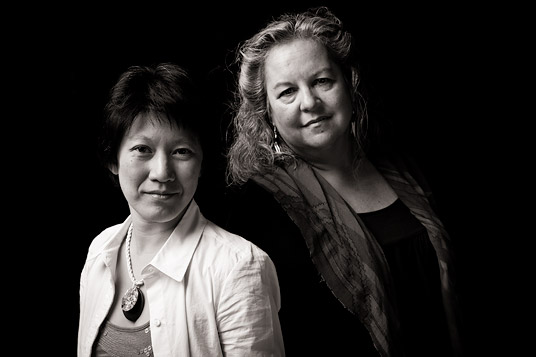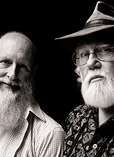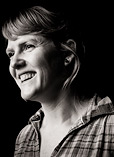
Robin Kimmerer & Mimi Lam
Common ground
THEMES: Society | WORKSHOP: Natural History & Society
Biographies
Robin Kimmerer
Dr. Kimmerer is a mother, plant ecologist, writer and SUNY Distinguished Teaching Professor at the SUNY College of Environmental Science and Forestry in Syracuse, New York. She is the founder and director of the Center for Native Peoples and the Environment. Kimmerer’s research interests include the ecology of mosses and the role of traditional ecological knowledge in ecological restoration. In collaboration with tribal partners, she and her students have an active research program in the ecology and restoration of plants of cultural significance to Native people. She has developed university courses in aspects of botany, ecology, ethnobotany and Native American Natural Resource Management, as well as a seminar in application of Traditional Ecological Knowledge to conservation. She is active in efforts to broaden access to environmental science training for Native students, and to introduce the benefits of traditional ecological knowledge to the scientific community, in a way that respects and protects indigenous knowledge.Conversations:
Workshops:
Mimi Lam
Dr. Mimi E. Lam is a Research Associate at the University of British Columbia (UBC) Fisheries Centre in the Policy and Ecosystem Restoration in Fisheries group and an Associate of the UBC Centre for the Study of Human Evolution, Cognition, and Culture. She researches the human dimensions of fisheries, articulating socio-economic and cultural values in science and policy as an application of her theoretical research in the evolution of human cognition and behavior. As an Adjunct Assistant Professor at the University of New Mexico, Department of Biology, she collaborates with indigenous colleagues to research learning and knowledge transfer in culturally responsive curricular design, traditional ecological knowledge, and sense of place. Mimi is currently the Ecological Society of America (ESA) Traditional Ecological Knowledge (TEK) Section Chair and Education and Human Resources Committee Diversity Representative and was just elected to serve a two-year term as an ESA Member-at-Large (2011-2013). A Senior Fellow of the Environmental Leadership Program, Mimi explores sustainability of social-ecological systems in issues of conservation, environmental justice, and social equity, as in "The Privilege to Fish," a special feature she is editing for Ecology and Society.Conversations:
Workshops:
Transcript
Robin Kimmerer: Natural history is a natural meeting ground for scientific ecological knowledge and traditional ecological knowledge. Because natural historians are asking those same kinds of questions. They're asking about the species biographies. They're asking about patterns on the landscape, and patterns over time. They're not asking the mechanistic question, "Why does that bird sing? What are the vocal chords structured like?" So I think that natural history is a fertile meeting place for traditional ecological knowledge.
What do you think about that?
Mimi Lam: We've all come from nature. So natural history is our story. It's the human story and it's our collective memory. I think that by studying natural history it can unite us as a people, as members of one human community that's derived from nature.
Robin Kimmerer: I agree completely. It's so wonderful to hear those words sitting in the presence of that fence. To me, that fence is really iconic in what we're thinking about here. That it is common ground. And it is natural history that allows us to stop othering in the world and find common ground.


